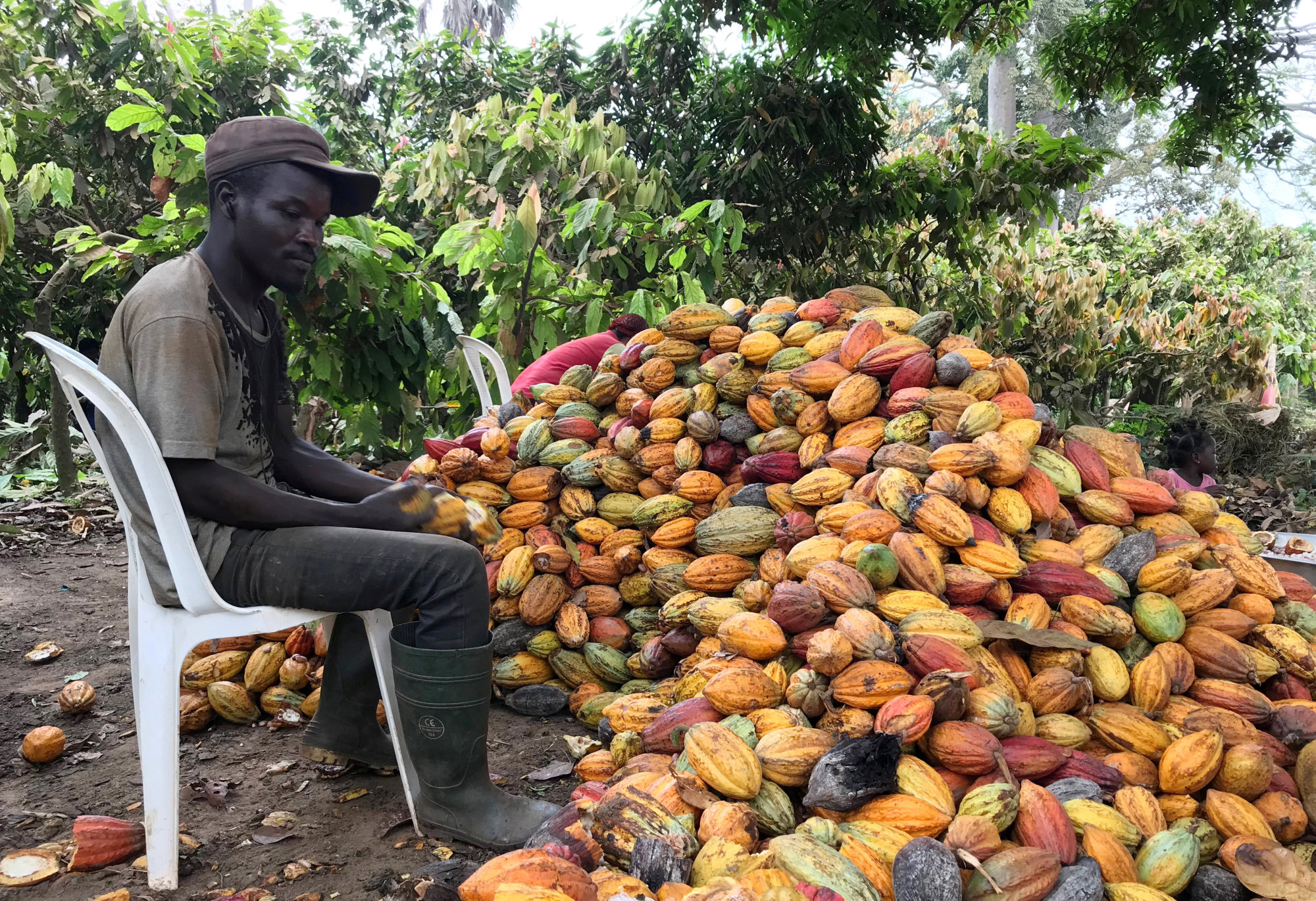Every day at sunrise, Alain Eko walks half an hour on a footpath cutting through a coastal forest to the edge of what's to become the biggest deep-water port in central Africa.
Eko, 34, is among hundreds of migrant workers who have pinned their hopes on Cameroon's most ambitious project since independence in 1960 that's meant to transform the sleepy fishing town of Kribi into an industrial hub. Built and funded by China, the project is helping Chinese companies gain a foothold in Cameroon, whose oil-dependent economy used to be dominated by French firms, and eased access to neighboring Chad and Central African Republic.
A university graduate, Eko has offloaded trucks, wedged bricks into hill slopes and shoveled dirt since he moved to southwestern Cameroon to work as a day laborer with contractors for the company building the port, China Harbour Engineering Co., locally known as CHEC. He hopes that one day he'll earn enough to bring his wife and child from the interior.


















With your current subscription plan you can comment on stories. However, before writing your first comment, please create a display name in the Profile section of your subscriber account page.